Image
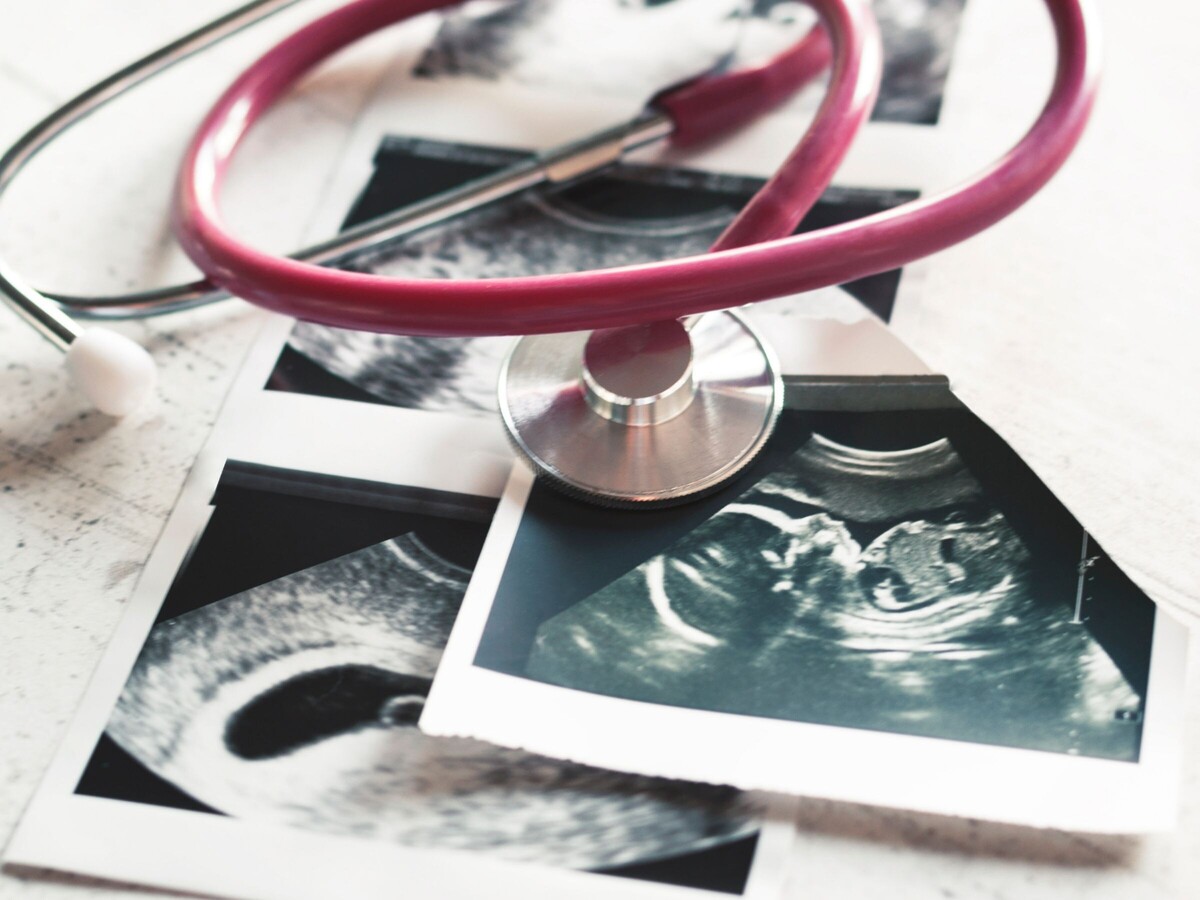

More than 90% of pregnancy-related deaths in New Jersey from 2016 through 2018 were preventable, according to the New Jersey Department of Health’s New Jersey Maternal Mortality Review Committee (NJMMRC) report released today. The NJMMRC serves to comprehensively assess maternal deaths and identify opportunities for prevention.
The findings documented in this report further affirm the importance of addressing maternal mortality rates and eliminating disparities in maternal health outcomes in New Jersey.
The report aligns with a recent study by the federal Centers for Disease Control and Prevention (CDC), which assessed 2017-2019 Maternal Mortality Review Committee data from 36 states, including New Jersey, and found that more than 80% of pregnancy-related deaths were preventable, meaning that at least some chance of being averted by one or more reasonable changes to patient/family, provider, facility, system, and/or community factors.
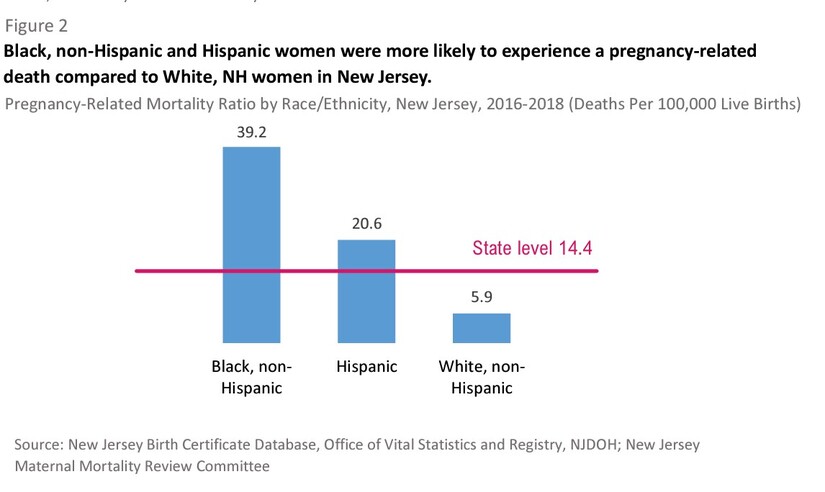
In 2019, the First Lady launched Nurture NJ, a statewide program committed to reducing maternal and infant mortality in New Jersey and ensuring equitable care among women and children of all races and ethnicities.
In January 2021, the First Lady unveiled the Nurture NJ Maternal and Infant Health Strategic Plan, with the goal of reducing New Jersey’s maternal mortality by 50 percent over five years and eliminating racial disparities in birth outcomes.
“First Lady Tammy Murphy’s Nurture NJ initiative, along with the state Health Department, continue to focus on maternal mortality as a public health priority,” said Health Commissioner Judith Persichilli. “Reaching the goal of making New Jersey the safest state to give birth requires all of us to redouble our efforts to improve maternal and child health outcomes and eliminate racial disparities.”
In 1932, New Jersey became the second state in the nation to institute a maternal mortality review team. Governor Murphy signed legislation in 2019 to help improve upon the efforts of the existing review team by formally establishing the NJMMRC within NJDOH, increasing its legal authority to investigate potential pregnancy-related deaths, and including 24 members representing relevant clinical specialties, maternal and child health consortia, professional organizations, and state agency subject matter experts.
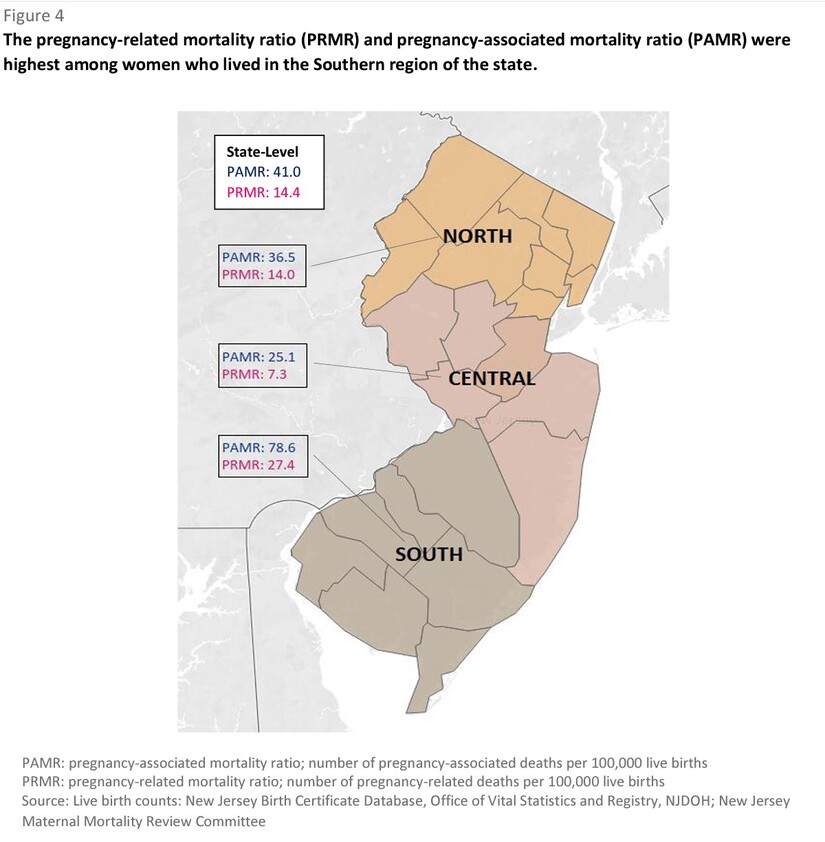
The NJMMRC identified 125 pregnancy-associated deaths during or within 365 days of any one pregnancy between 2016-2018. Of these deaths:
Thirty-nine (91%) of the 43 pregnancy-related deaths were determined to be preventable (one pregnancy-related death was reviewed prior to 2018 and excluded from the preventability analysis). Among the preventable pregnancy-related deaths, 18% had a good chance to alter the outcome while 79% had some chance to alter the outcome.
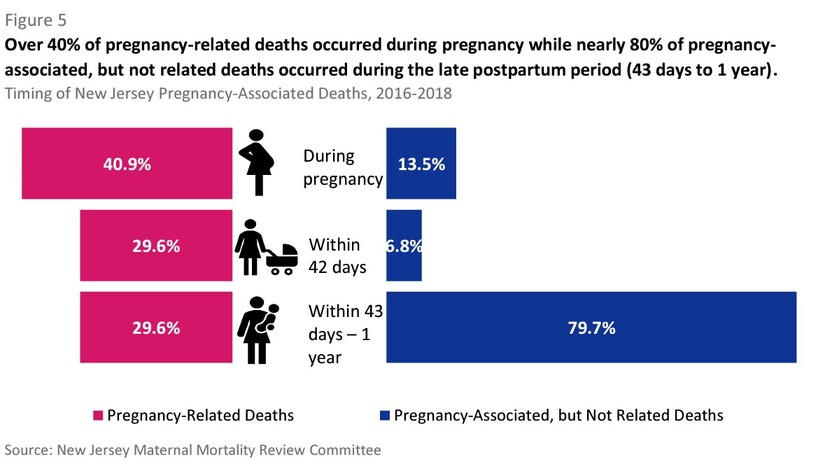
From 2016 through 2018, the pregnancy-related mortality ratio (number of pregnancy-related deaths per 100,000 live births) for Black, non-Hispanic women (39.2 deaths per 100,000 live births) was 6.6 times higher than for White, non-Hispanic women (5.9 per 100,000 live births).
The pregnancy-related mortality ratio for Hispanic women (20.6 per 100,000 live births) was 3.5 times higher than for White, non-Hispanic women.
These disparities are among the driving factors behind the State's ongoing efforts to make a more equitable system of care for every mother and child in the state.
Nearly 60 percent of pregnancy-related deaths occurred during the postpartum period within one year of the end of pregnancy.
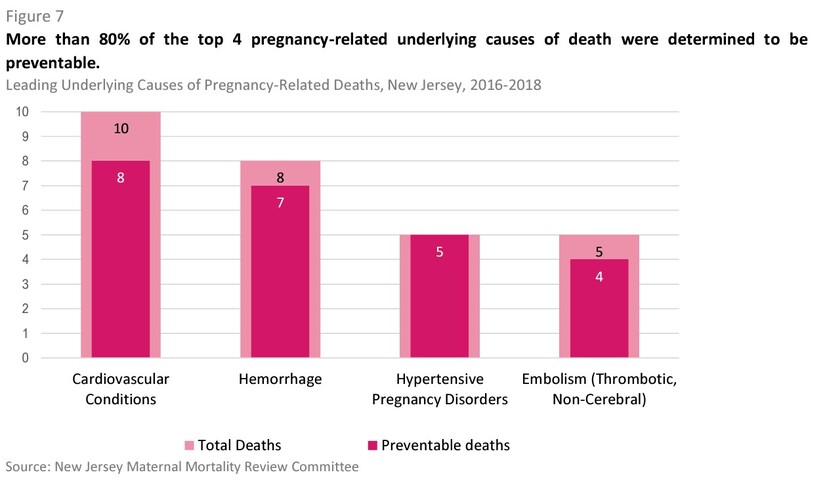
The State responded to this number, saying, "through the First Lady’s Nurture NJ initiative, the Administration has strengthened care continuity through investments in doula reimbursement, increased Medicaid coverage 365 days postpartum, and developed better supports for patient education about post-birth warning signs."
The leading underlying causes of death for the 44 pregnancy-related cases were attributed to cardiovascular conditions (22.7%), hemorrhage (18.2%), thrombotic, non-cerebral embolism (11.4%), and hypertensive pregnancy disorders (preeclampsia, eclampsia, or chronic hypertension with superimposed preeclampsia, 11.4%).
"The Administration has worked with hospital systems to promote the implementation of evidence-based protocols to prevent these leading causes." - Murphy Administration, NJDOH
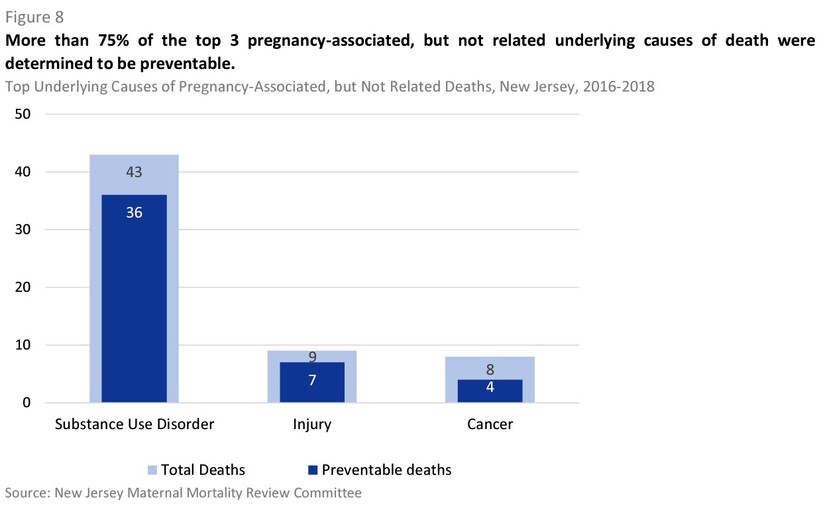
Nearly three in five pregnancy-associated, but not related, deaths (58.1% of 74 deaths) in 2016 through 2018 were due to overdose as a result of substance use disorder.
This year, the Medical Director of the New Jersey Maternal Care Quality Collaborative (NJMCQC), Dr. Damali Campbell-Oparaji, led a Project ECHO series focused on Substance Use Disorder (SUD) and pregnancy through Rutgers University to enhance provider education about opportunities to reduce harm.
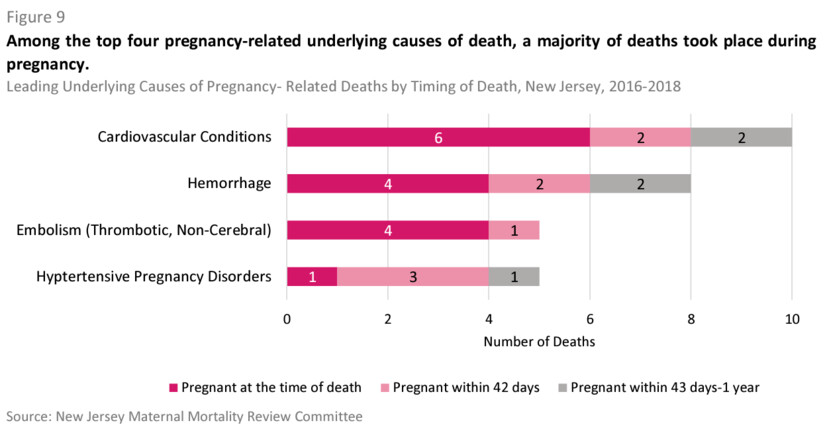
The report includes recommendations to ensure high-quality care, build patient knowledge, address barriers to care, implement a holistic approach to care, and share patient records and information about the care provided.
According to the report, contributing factors identified among preventable, pregnancy-related deaths illustrate a need for improved patient and provider knowledge.
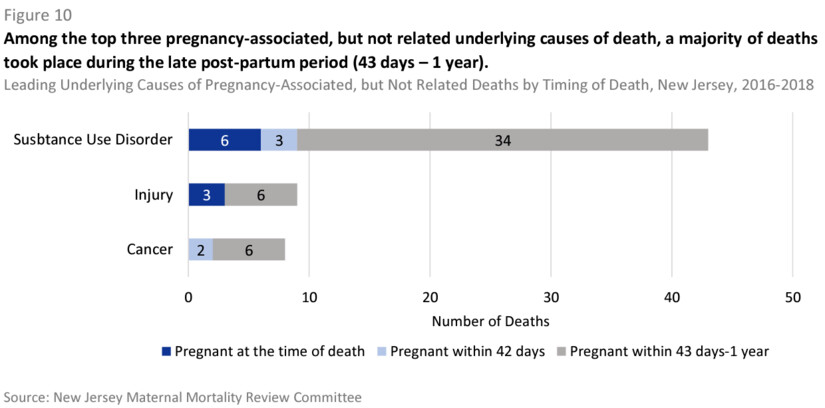
"The Administration is working to close these gaps through training and reimbursement of community doulas and investments in implicit and explicit bias trainings for maternal health practitioners. Through the New Jersey Maternal Care Quality Collaborative, the Administration will continue to identify interventions in the health sector to put the NJMMRC data to action." - The Murphy Administration, NJDOH
Our reporters will be dedicating time and resources to investigating the roadblocks to mental health accessibility in our town.
Donate to Morristown, NJs local mental health accessibility fund today!
 Scan or click to donate!
Scan or click to donate!*The 2022 Local News Fund is a program administered by the Local Media Foundation, a 501(c)(3) organization affiliated with the Local Media Association. The program’s purpose is to allow independent and family-owned news organizations to solicit tax-deductible donations from their communities for journalism projects focusing on critical local issues. Contributions to this program are tax-deductible to the full extent of U.S. law; please consult a tax advisor for details.